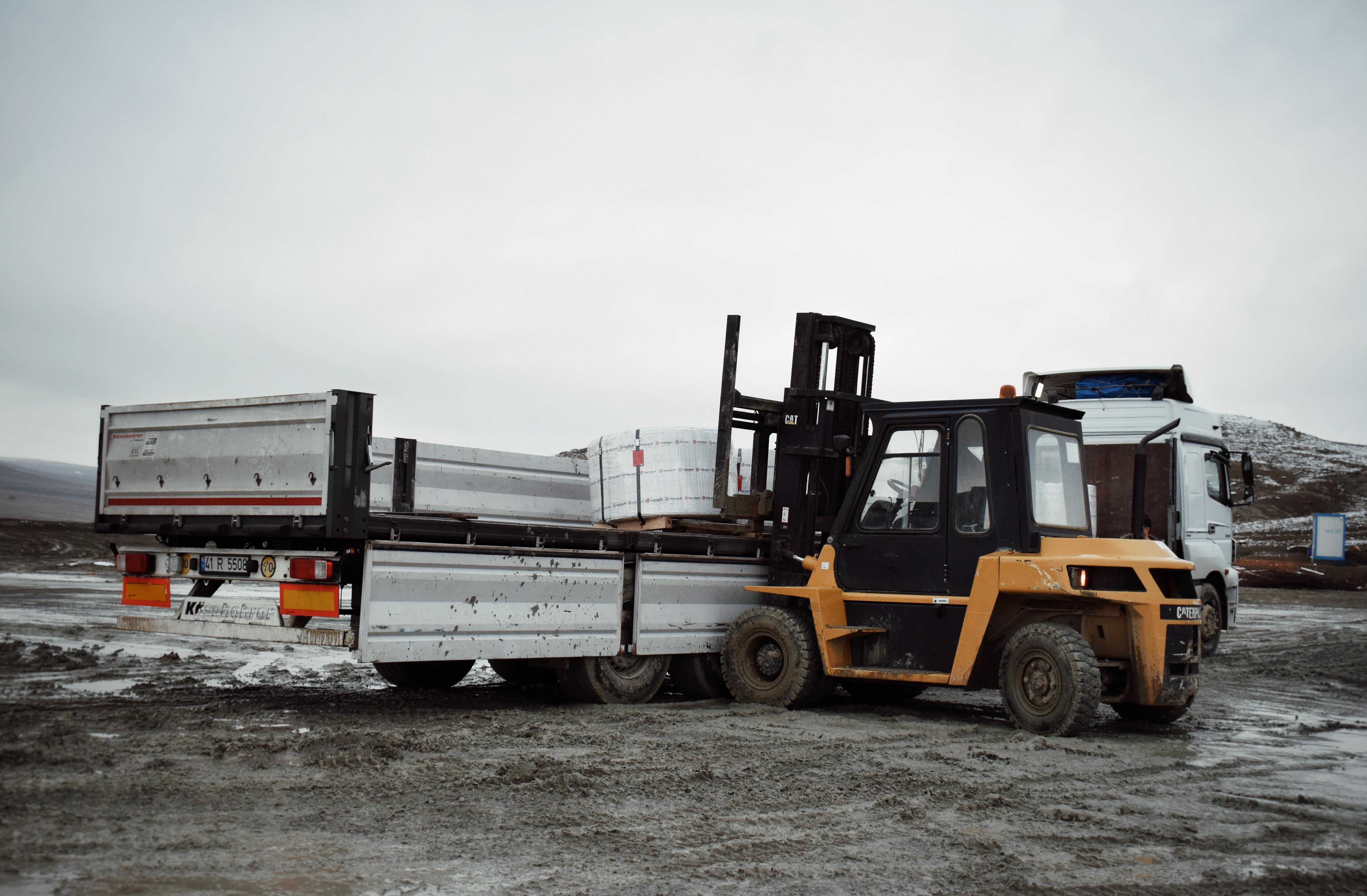Are There Any Special Considerations For ISF Filings For Goods Transported By Sea Vs. Air Or Land?
When it comes to filing an Importer Security Filing (ISF) for your goods, it’s essential to understand that different modes of transportation may require special considerations. Whether your goods are being transported by sea, air, or land can impact how you complete your ISF. The regulations and requirements may vary, and it’s crucial to be aware of these differences to ensure smooth and compliant shipping. In this article, we will explore the special considerations that need to be taken into account when filing an ISF for goods transported by sea compared to air or land.
ISF Filings Made Easy: Understanding Special Considerations for Different Modes of Transportation
In the world of international trade, understanding the intricacies of Importer Security Filing (ISF) is essential. As an importer, it is crucial to grasp the special considerations for different modes of transportation when it comes to ISF filings. This comprehensive guide will walk you through the importance of ISF filings, the unique aspects of sea, air, and land transportation, differences in documentation requirements, variances in transit times, safety and security measures, insurance considerations, and potential challenges and risks.
Understanding ISF Filings
First and foremost, let’s establish a clear understanding of what ISF filings are. An ISF filing, also known as a 10+2 filing, is a mandatory requirement by U.S. Customs and Border Protection (CBP) for importers who are shipping goods to the United States. This filing ensures that relevant information regarding the cargo, the consignee, and the shipment is provided to CBP in advance.
The purpose of an ISF filing is to enhance border security and facilitate risk assessment by CBP. By receiving detailed information about the imported goods before their arrival, CBP can identify any potential security threats, verify the compliance of shipments, and conduct necessary inspections or examinations.
Meeting the requirements for an ISF filing is crucial to avoid penalties or delays in the customs clearance process. Importers must ensure accurate and timely submission of all required information to CBP prior to the departure of the goods from the foreign port.
Importance of Different Modes of Transportation
The mode of transportation plays a significant role in determining the specific considerations for ISF filings. Whether goods are transported by sea, air, or land, each mode presents unique challenges, requirements, and regulations that importers must be aware of.
When it comes to sea transport, for instance, the filing process is slightly different compared to air or land transport. Similarly, air transport introduces its own set of regulations and security measures that differ from sea or land transport. Understanding these differences is crucial for importers to ensure compliance and avoid potential issues.

Special Considerations for Goods Transported by Sea
Transporting goods by sea presents its own set of challenges and requirements in terms of ISF filings. Sea transport typically involves shipments in containers, and importers must address several unique considerations.
One significant aspect is the port security requirements. As goods are loaded onto vessels at foreign ports, it is essential to ensure that the cargo and the containers meet specific security standards. Importers must comply with these requirements to prevent any delays or security breaches.
Documentation specific to sea transport is another crucial consideration. A detailed and accurate bill of lading, which serves as evidence of the contract of carriage, must be provided to CBP. Additionally, packing lists and customs declarations play a vital role in ensuring compliance with ISF requirements for sea transport.
Special Considerations for Goods Transported by Air
When it comes to goods transported by air, there are several key differences in ISF filings compared to sea or land transport. Air transport is known for its speed, but it also comes with its own regulations, security measures, and cargo inspection procedures.
Airline regulations play a significant role in determining the requirements for ISF filings. Each airline may have specific documentation and information requirements that importers must adhere to. Security measures at airports, including cargo screening, further contribute to the considerations for air transport ISF filings.
Cargo inspection and customs procedures are also crucial aspects to be mindful of when shipping goods by air. Strict customs clearance processes and necessary documentation must be provided to CBP to ensure seamless transit and compliance.

ISF Cargo for more Information
Special Considerations for Goods Transported by Land
Goods transported by land, whether through trucks or trains, present their own set of considerations for ISF filings. Importers need to be aware of several factors that can affect the ISF process and compliance requirements.
Customs procedures and border security are crucial considerations for land transport ISF filings. Given the potential for multiple border crossings, importers must ensure that all necessary customs documentation is in order and readily available. Compliance with border security measures is equally important to avoid any delays or penalties.
Road safety and documentation are additional factors that importers must consider when shipping goods by land. The transportation of goods via trucks or trains necessitates adherence to safety regulations and the provision of required documentation related to the cargo being transported.
Differences in Documentation Requirements
The documentation requirements for ISF filings can vary depending on the mode of transportation. Understanding these differences is paramount for importers to ensure compliance with CBP regulations.
For sea transport, key documents include the bill of lading and the packing list. The bill of lading serves as proof of the contract of carriage and must be accurate and complete. The packing list provides details about the contents of the containers and is vital for customs clearance.
In the case of air transport, importers must be familiar with the airway bill, which is the air transport equivalent of the bill of lading. This document contains information about the shipment and serves as evidence of the contract of carriage in air transport. Additionally, customs declarations and packing lists remain essential for compliance with ISF requirements.
Variances in Transit Times
Transit times can vary significantly depending on the mode of transportation and various external factors. Importers must consider these variations when planning their ISF filings and logistics.
Sea transport is generally characterized by longer transit times compared to air or land transport. Factors such as the distance between ports, weather conditions, and potential delays in port operations can contribute to longer transit times in sea transport. Understanding these variations is crucial when scheduling the ISF filing and coordinating with the various parties involved in the transportation process.
Air transport, on the other hand, offers the advantage of faster transit times. However, potential delays in customs clearance, cargo inspections, or airline operations can still impact the overall transit time. Importers must plan for potential delays and ensure that the ISF filing is submitted in a timely manner to avoid any issues upon arrival.
Safety and Security Measures
Ensuring the safety and security of goods during transportation is vital for importers. Different modes of transportation have their own unique security considerations and measures that must be taken into account.
Sea transport requires careful attention to container inspection and verification. Ensuring that containers are properly sealed, labeled, and compliant with security standards is crucial. Importers must work closely with shipping lines and port operators to guarantee that containers are properly inspected and meet all security requirements.
Air transport introduces additional security considerations due to the strict regulations in place. Cargo screening, including X-ray scans and explosive trace detection, is a routine part of the air transport process. Importers must be prepared for these security measures and ensure that their goods comply with all necessary regulations.
Land transport also has security measures in place, especially at border crossings. Adherence to customs procedures and compliance with border security requirements is essential to prevent any security breaches or delays.
Insurance Considerations
Importers should not overlook the importance of insurance coverage for their shipments. Different modes of transportation present varying levels of risk, and having appropriate insurance coverage can provide peace of mind.
Sea transport is known for its inherent risks, such as piracy, accidents, or damage to cargo due to rough seas. Importers should consider marine cargo insurance to protect their goods against these potential risks.
Air transport, although generally considered safer, still presents risks such as loss, damage, or theft of cargo. Adequate air cargo insurance can mitigate these risks and provide financial protection in the event of any unfortunate incidents.
Land transport also carries its own set of risks, including accidents, theft, or damage to cargo. Importers should explore insurance options specifically tailored for the transportation of goods by road or rail.
Potential Challenges and Risks
Despite careful preparation and adherence to ISF filing requirements, importers may face several challenges and risks along the way. Being aware of these potential issues is crucial for effective risk management and problem-solving.
Common challenges in ISF filings include incorrect or incomplete documentation, data transmission errors, and timing issues. Importers must triple-check all information provided in the filing to avoid any discrepancies or penalties.
Each mode of transportation also comes with its own risk factors. For sea transport, potential challenges include unpredictable weather conditions, port congestion, or delays in container loading. Air transport can suffer from airline or customs delays, cargo inspection requirements, or restricted goods regulations. Land transport may face issues such as traffic congestion, road closures, or the need for additional permits or approvals.
Navigating these potential challenges requires a proactive approach, effective communication with all relevant parties, and contingency planning to address any unforeseen circumstances that may arise.
In conclusion, understanding special considerations for different modes of transportation in relation to ISF filings is crucial for importers. By familiarizing yourself with the unique challenges, documentation requirements, transit time variations, safety and security measures, insurance considerations, and potential challenges and risks associated with sea, air, and land transport, you can ensure compliance, streamline your import processes, and mitigate potential issues along the way. Importing goods to the United States requires careful planning and attention to detail, and thorough knowledge of ISF filings for different modes of transportation is a key factor in successful and efficient international trade.
Learn more about CBP ISF regulations. Know more for CBP bond compliance. Feel free to Importer Security Filing support. Return to Importer Security Filing company USA.
